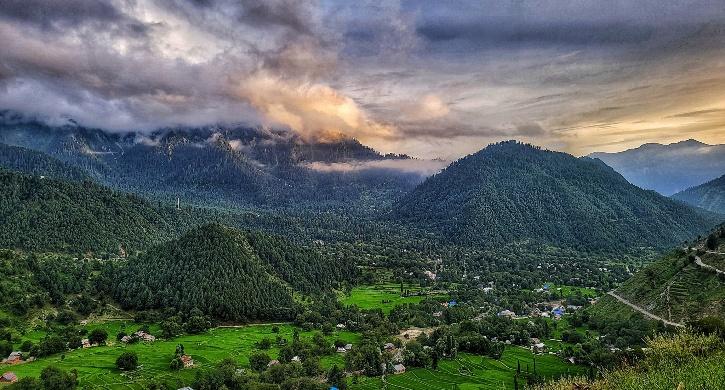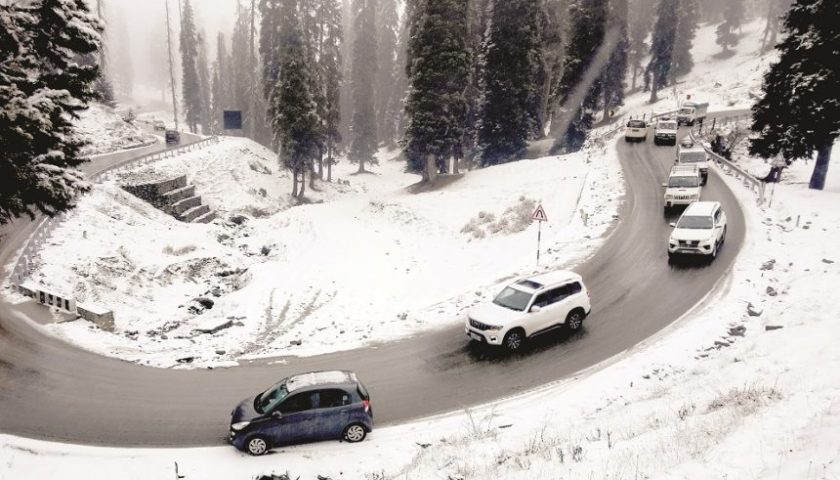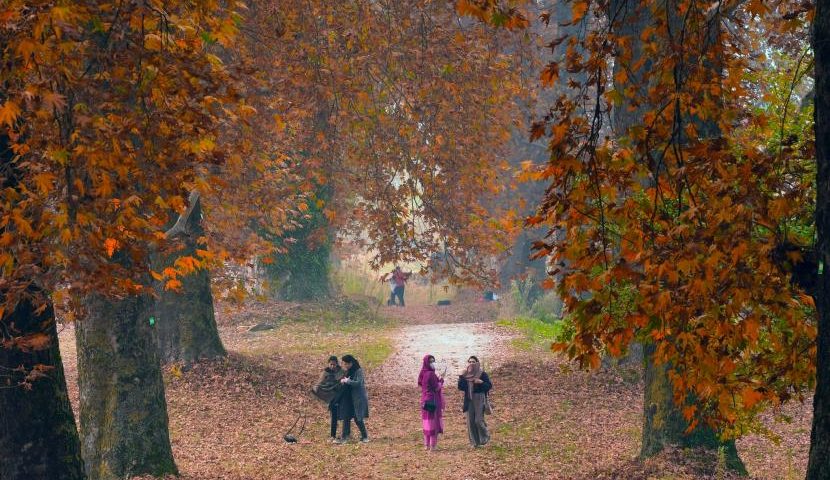After some peaceful years along the LOC, the government of Jammu and Kashmir, along with the department of tourism, have opened many areas close to the LoC for tourists and visitors.
The opening up of the regions, including Keran, Gurez, Tangdhar, Machil and Bangus, has not only unveiled their natural beauty but also provided a unique opportunity for tourists to witness a border that divides two nations.
These picturesque areas lying in close proximity to the Line of Control (LoC) in North Kashmir are emerging as the new frontiers of tourism.
Also Read | Keran: A Pristine Paradise in Kashmir, Unearthing Its Enchanting Beauty
Nestled amid the towering mountain ranges, these previously inaccessible gems have captured the imagination of both local and international tourists. The rugged terrain, pristine rivers, and lush valleys offer an unparalleled experience to nature enthusiasts and adventurers.
Visitors are greeted with panoramic vistas of snow-capped peaks, meandering rivers, and vibrant alpine flora that paint a canvas of serenity. As the sun casts its golden hues upon the landscape, these areas transform into a paradise for photographers and wanderers alike.
The allure of these regions, however, goes beyond the beauty of their natural surroundings. Tourists are captivated by the historical and geopolitical significance of being so close to the LoC. The border itself, though a division, serves as a point of curiosity and interest.
Visitors are intrigued by the idea of standing on the very cusp that separates two nations. This curiosity is tinged with a sense of reflection, as tourists ponder over the complexities and the stories that this border has witnessed over the years.
Also Read | Naranag: Exploring the Rich History, Enchanting Scenery, and Trekking Paradise of Kashmir
The inclusion of Keran, Gurez, Tangdhar, Machil, and Bangus in the list of new tourist destinations has invigorated the local economy. Small-scale businesses catering to accommodation, food, and transportation have sprouted, offering a range of options for every budget. The influx of tourists has not only created job opportunities but has also led to infrastructural improvements in the region, benefitting both locals and visitors alike.
Mohd Aqib Mir, a local law student from Tangdhar Kupwara said, “It is a welcome step. Now local and as well as foreign tourists will be able to explore the hidden gems and true beauty of Kashmir, which had remained unknown and unexplored for decades. Now government authorities and local communities must collaborate to implement regulations that safeguard the environment while allowing visitors to appreciate the natural wonders responsibly.
“Moreover, the geopolitical sensitivities of these regions cannot be overlooked. The LoC remains a heavily guarded and monitored boundary, and tourism in such areas requires meticulous planning and coordination to ensure the safety and security of all parties involved. The government must work l to facilitate smooth travel experiences for tourists while maintaining the sanctity of the border,” he added.
Also Read | Bungus Valley: The Hidden Gem of The Himalayas
Shafat Wani, a local from Uri, Baramulla said, “The opening of areas close to the LOC in North Kashmir has unleashed a wave of tourism, allowing visitors to explore the untamed beauty of these landscapes while getting a glimpse of the border that separates two nations. The inclusion of Keran, Gurez, Tangdhar, Machil and Bangus in the list of new tourist destinations has brought economic benefits to the regions.”
As North Kashmir’s LoC-adjacent areas continue to gain popularity, it is essential to strike a balance between economic development, ecological preservation and geopolitical sensitivity. The region’s tourism potential is undeniable but its sustainability hinges on well-managed growth and collaboration between stakeholders.
Terming the development as a welcome step Shafat Wani added that “As these areas evolve into sought-after travel destinations, it is imperative to embrace responsible tourism practices, prioritize environmental conservation and ensure the security of both tourists and locals. Only through a concerted effort can these regions truly flourish as sustainable and captivating travel destinations.”
Also Read | Best Places for Destination Wedding in Kashmir






